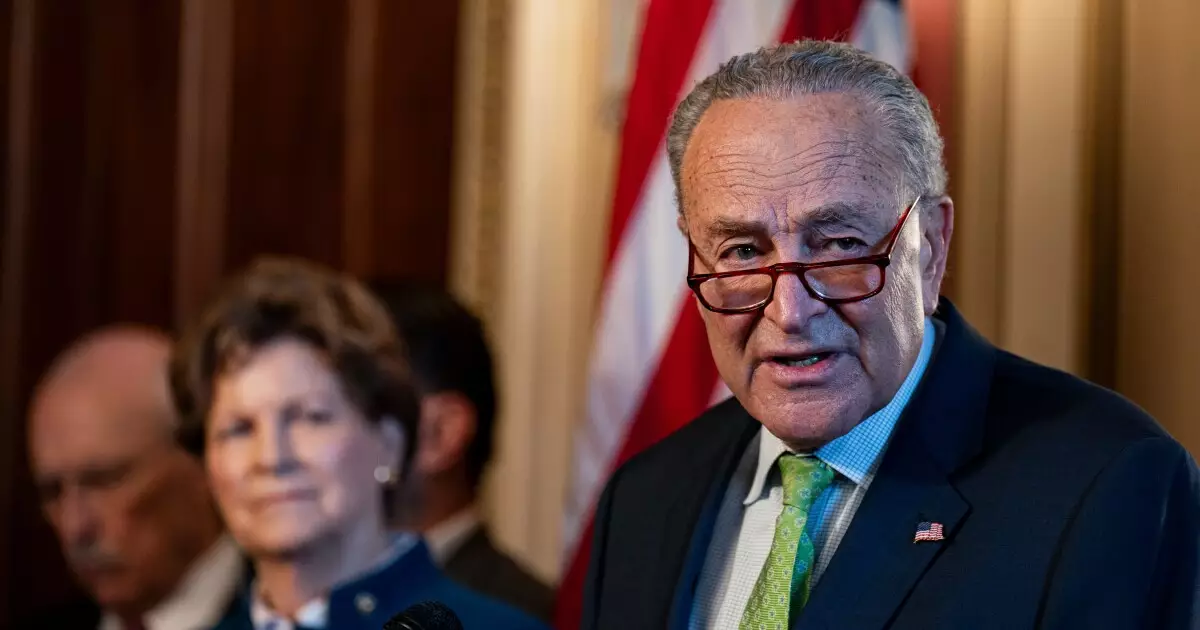In a move that stirred political controversy and legal challenges, the White House recently rescinded a federal funding freeze directive that initially incited confusion across various governmental and public sectors. This decision did not resolve the underlying tensions; instead, it catalyzed further legal battles, particularly among states that felt aggrieved by the administration’s vacillation over funding matters. Critics point to this situation as part of a larger pattern of executive overreach, wherein the executive branch allegedly seeks to override legislative authority as enshrined in Congress.
The situation began when the Office of Management and Budget (OMB) issued instructions to halt the distribution of federal grants and loans, raising eyebrows and prompting immediate backlash. The timing coincided with a slew of executive orders issued by President Trump, aimed largely at re-establishing control over federal funds and implementing significant changes to previous policies, especially those related to immigration and diversity initiatives. The abrupt freeze continued to reverberate, as state officials and political leaders assessed its implications for public services and federal-state relations.
The states responded rapidly; 22 Democratic-led states banded together to file a lawsuit challenging the directive. A federal judge in Rhode Island ruled in favor of these states, allowing for their proposed injunction to proceed. This legal maneuvering shows how state governments are positioning themselves as defenders against perceived executive overreach. By seeking a 14-day stay to prevent the administration from unpredictably altering federal financial assistance, the states aimed to cement their financial predictability in the face of federal machinations.
The legal landscape is complicated and fluid. Notably, the Department of Justice is under a deadline to respond to the latest arguments presented by these states. A ruling is anticipated soon, creating a palpable sense of urgency around this issue. Meanwhile, a coalition of nonprofits pursuing a similar lawsuit received a stay from a federal judge, indicating a growing concern about the ramifications of the executive orders beyond state borders. These developments imply an intricate web of legal and political challenges that any future federal funding directives must navigate.
Amid the chaos, Congressional Democrats have been vocally critical of the administration’s approach, claiming that the OMB order was emblematic of a systematic attempt to undermine legislative control over federal appropriations. With concerns echoing throughout the Senate chambers, New York Senator Chuck Schumer voiced the prevailing sentiment: a anxieties regarding the administration’s potential inclination to revisit these funding freezes persist, even after the rescission.
The political discourse surrounding this issue is not merely a matter within legal confines; it illustrates the broader ideological rift between Democratic and Republican leaders. The recent events underscore how the interpretative flexibility of executive power remains a contentious arena in American governance. Democrats worry about the erosion of checks and balances, particularly in areas affecting vulnerable populations who rely heavily on federal assistance.
The rescission of the funding freeze memo may seem like a resolution, but it signals a deeper ongoing struggle for control over federal funds. The White House appears intent on continuing its agenda of curtailing certain federal expenditures, with officials indicating the potential for forthcoming executive orders and OMB directives. The administration’s commitment to rein in federal spending on items like the Inflation Reduction Act and investments directed toward electric vehicle infrastructure reveals ongoing priorities that might clash with established programs and legislation.
The intertwined fates of state governments, nonprofit organizations, and federal authorities suggest that this conflict is far from over. As the legal and political drama unfolds, various stakeholders must prepare for the possibility of drawn-out litigation and political altercations that could impact a wide range of federal funding initiatives.
The recent events surrounding the federal funding freeze reflect more than an isolated episode; they represent a significant crossroads in the relationship between federal and state governments, one that may redefine operational protocols concerning federal aid for years to come.

